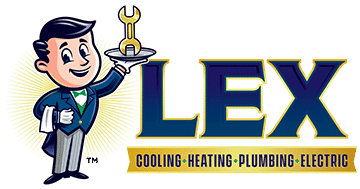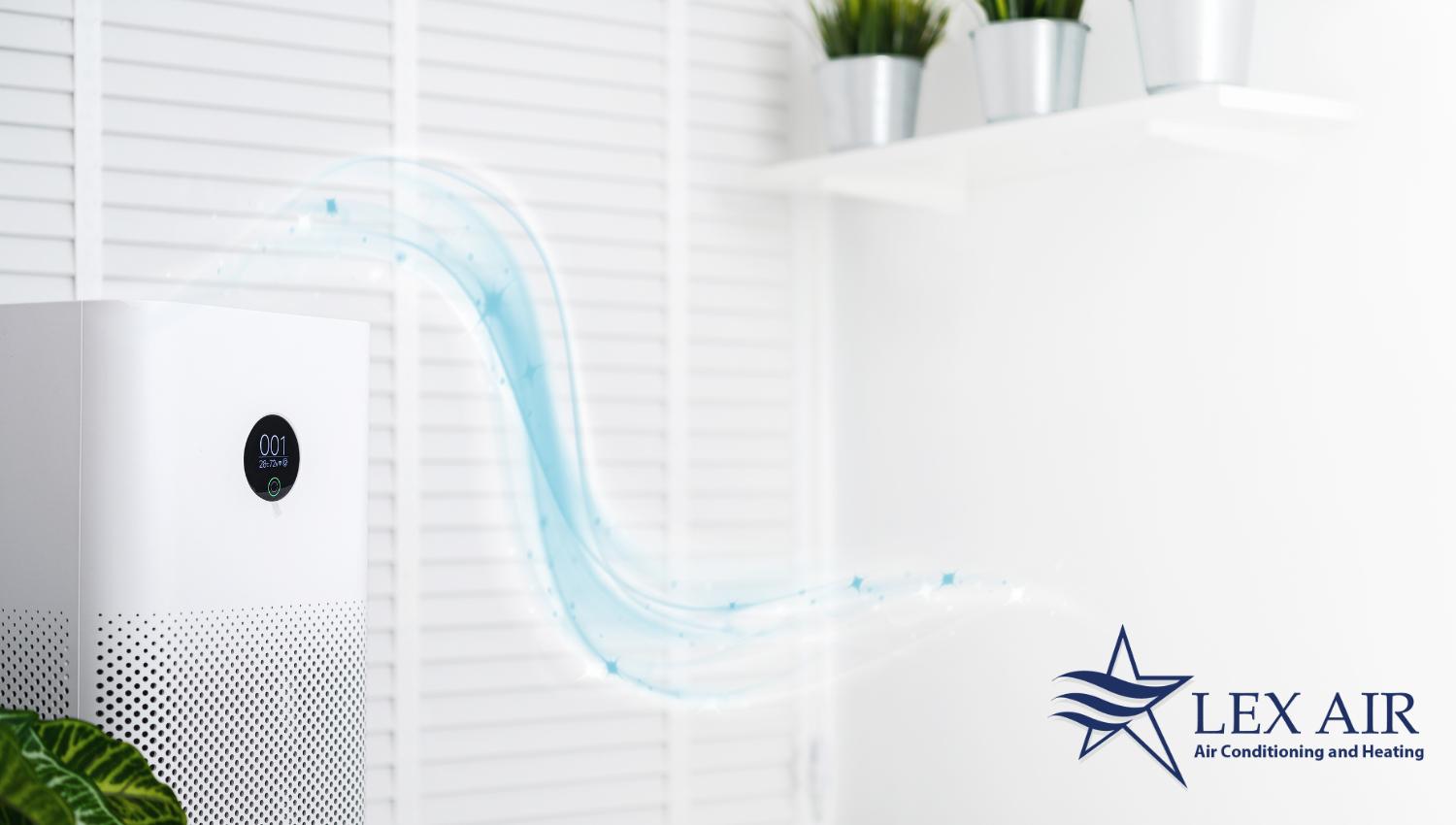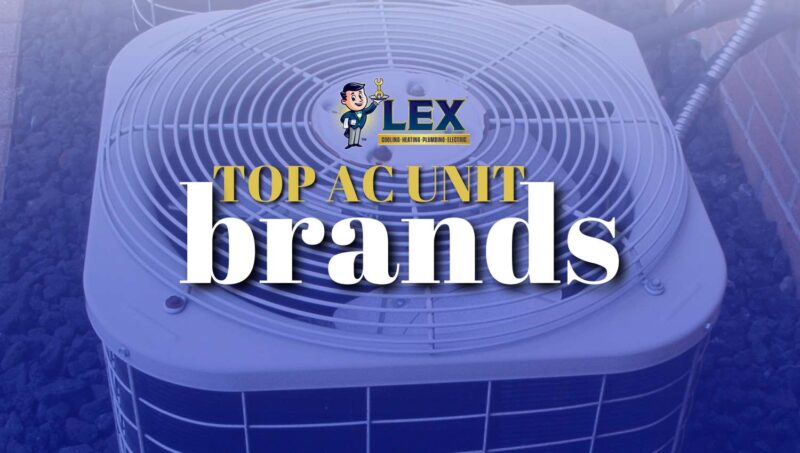Many people are surprised to learn that the air in indoor environments is typically more polluted than the air outside. The truth is, the air you breathe every day is littered with airborne pollutants, including everything from dust mites to smoke particles, mold spores, pet dander, and a number of other volatile organic compounds (VOCs). If breathing in clean air is important to you (and it should be), it’s important to consider your options. One of these options is investing in an air purifier for your home.
In this post, our Carrollton indoor air quality specialists at Lex Air Conditioning and Heating will explain how air purifiers work to improve your indoor air quality and why you need one.
What is an Air Purifier?
An air purifier is a device that is designed to improve indoor air quality by removing airborne particles and dangerous contaminants from the air inside a room or other enclosed space. Using innovative technologies and one or more filters, it works by trapping pollutants that are circulating throughout an indoor environment. These air cleaners can effectively eliminate indoor air pollutants and allergens by up to 99%.
Different Types of Air Purifiers
There are many air purifiers that you may choose from depending on your needs and budget. Some of the more common include HEPA purifiers, UV light purifiers, negative ion or “ionic” purifiers, and activated carbon purifiers. We’ll explain the differences of each of these air purifiers below.
HEPA Air Purifiers
HEPA filter air purifiers are considered one of the most effective air purifiers on the market today. These devices are equipped with what are called High-Efficiency Particulate Air (HEPA) filters, which are created to trap very small particles (as small as 0.3 microns in size!) with a high level of efficiency. Using a dense network of fibers, HEPA air filters work to capture airborne contaminants like dust, pollen, pet dander, mold spores, and even some bacteria and viruses, ensuring cleaner and healthier air in the environment where they are used.
UV Light Air Purifiers
UV light air purifiers use ultraviolet light to destroy biological impurities such as bacteria and viruses in the air. In essence, these air purifiers disrupt the DNA structure of these microorganisms and render them inactive. This technology helps improve indoor air quality by effectively eliminating these biological contaminants, making UV light air purifiers a popular choice for those looking for additional protection against airborne pathogens.
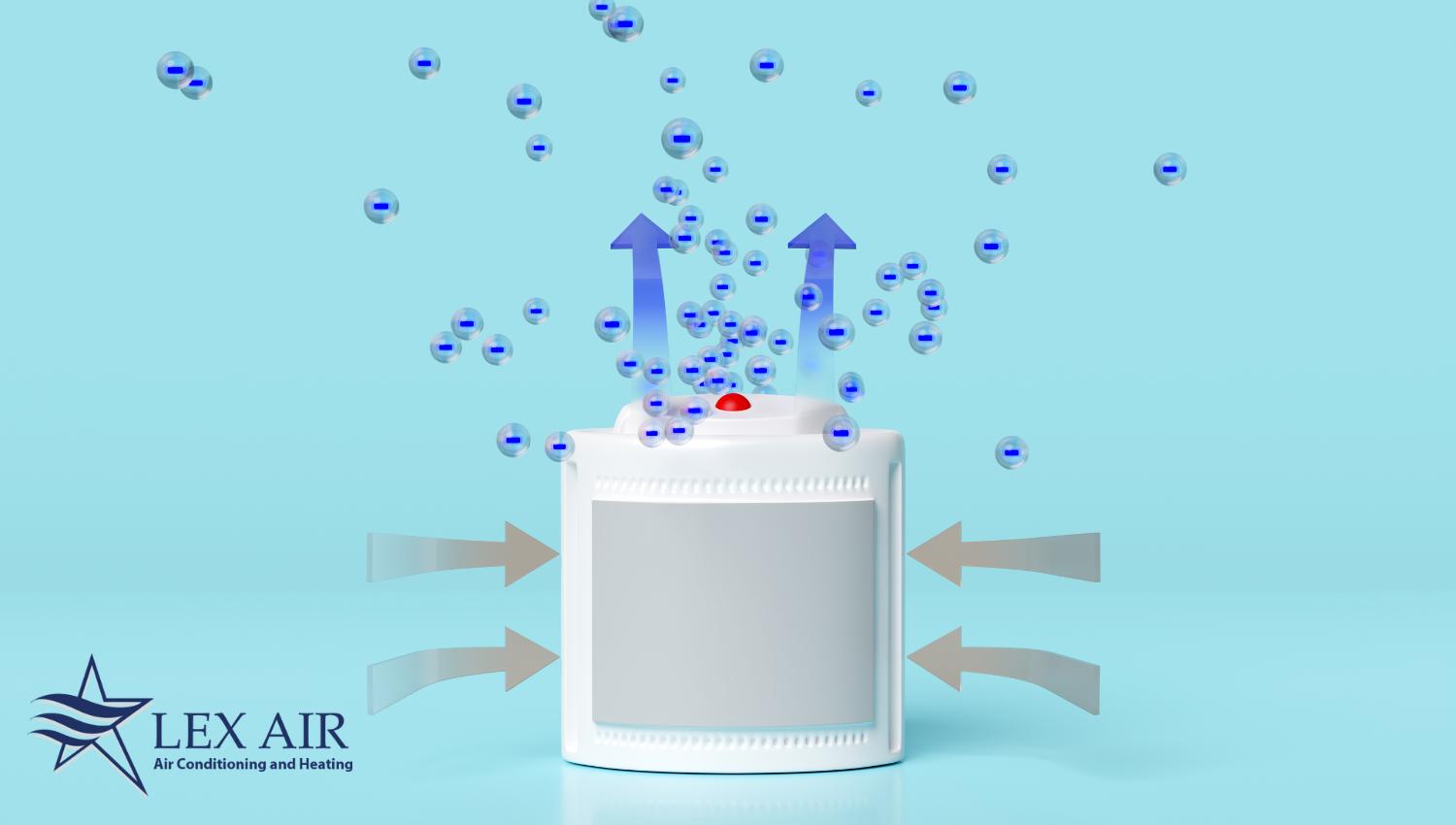
Negative Ion Air Purifiers
Negative ion air purifiers, such as air scrubbers, work by emitting negatively charged ions into the air that attach themselves to charged particles, such as pollen, bacteria, smoke, and other allergens. When these particles bond with the negative ions, it causes them to become heavier – too heavy to remain floating through the air. This process is known as ionization and is an effective means for removing harmful particles from the air you breathe.
Activated Carbon Air Purifiers
Activated carbon filters are infused with–you guessed it–activated carbon, which happens to be highly porous and has a large surface area. As such, an activated carbon filter is great for trapping and absorbing various odors, chemicals, and volatile organic compounds (VOCs) that may be in the air.
Portable Air Purifiers vs. Whole-Home Air Purifiers
Another thing to consider when looking into air purification systems is whether you want a smaller, stand-alone unit or a whole-home air purifier. Portable air cleaners are great for smaller areas or rooms, while whole-home air purifiers, which work in conjunction with your HVAC unit, have the ability to clean a much higher-square footage of air.
How Do Air Purifiers Work?
Now that you’ve learned about the various types of air purifiers, you’re probably wondering how they work. Of course, the filtration process varies depending on the type of air purifier you use. The general idea, however, is that when polluted air passes through the air purifier, positive and negative ions get separated by an electrically-charged fiber material that works to capture airborne pollutants and destroy pathogens. Then, it passes through another filter that works to trap particles that remain. This, of course, leads to healthier, cleaner air in your home.
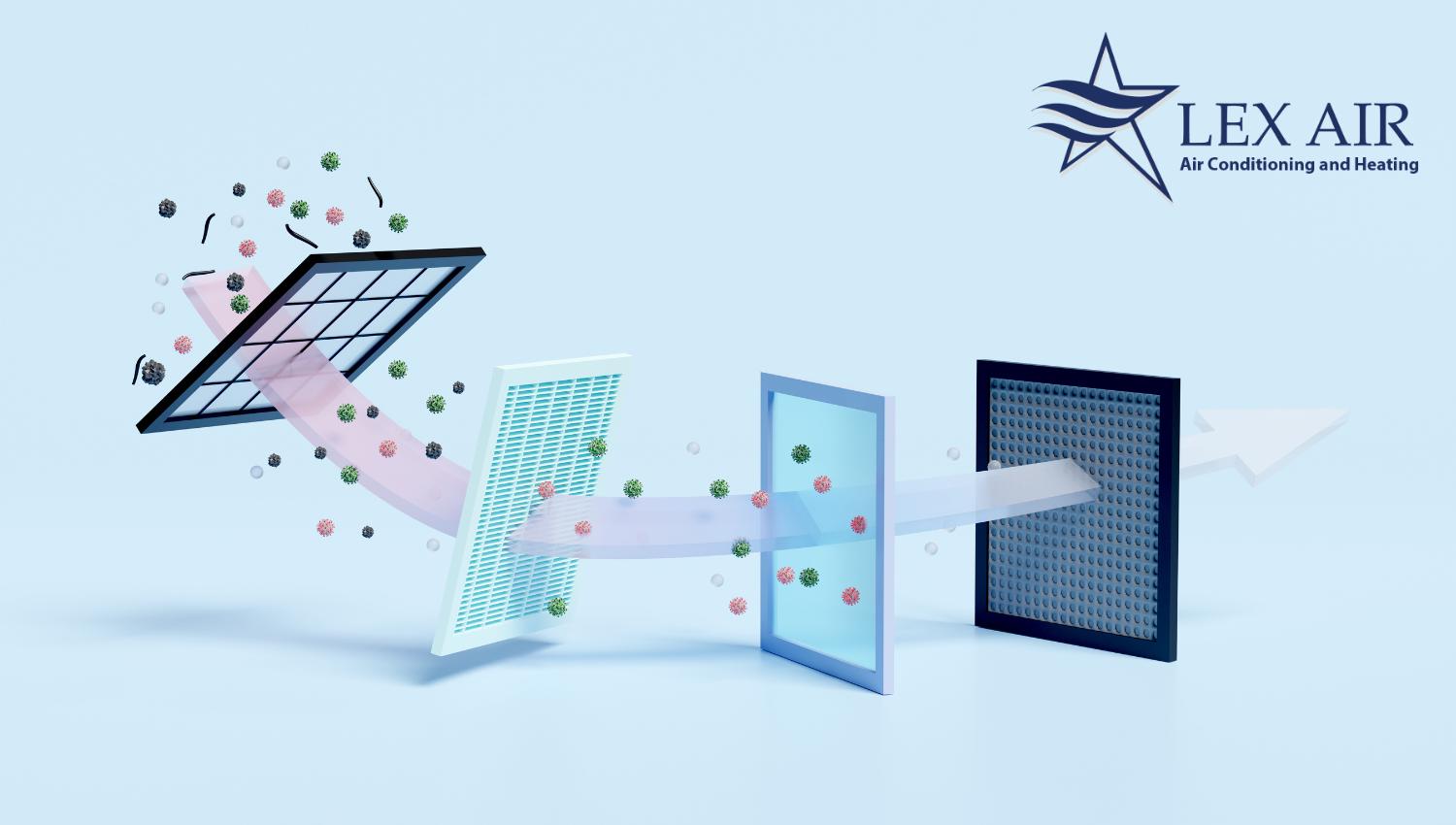
Benefits of Installing an Air Purifier In Your Home
Installing an air purifier in your home is a great way to achieve better air quality. More specifically, air purifiers help with:
- Allergy Relief: Air purifiers can help reduce allergy symptoms by capturing and removing a variety of allergens in the air, including things like pollen, dust mites, pet dander, and other common triggers.
- Respiratory Health: By combatting sources of indoor air pollution, air purifiers can improve respiratory health and reduce the risk of respiratory issues such as asthma, bronchitis, and other respiratory infections.
- Odor Elimination: Some air purifiers, such as the activated carbon air purifier, can help by eliminating unpleasant odors from anything from cooking to pets to tobacco smoke and more, leaving your home smelling fresh and clean.
- Removal of Harmful Chemicals: Certain air purifiers with specific filters can help remove volatile organic compounds (VOCs) and other harmful chemicals commonly found in things like beauty products, paints, and cleaning agents.
- Improved HVAC Efficiency: As you now know, air purifiers work to remove airborne pollutants from the air in your living space, catching them before they make it into your HVAC system. As such, your HVAC system won’t have to work as hard to produce conditioned air, making it more energy efficient. This, in turn, means lower energy bills for you.
- Reduced Germs: Certain air purifiers with UV light or ionization features effectively destroy airborne bacteria, viruses, and mold spores, reducing the spread of illnesses and overall promoting a much healthier environment.
- Long-Term Health Benefits: By consistently purifying the air, air purifiers contribute to long-term health benefits by reducing the risk of allergies, respiratory diseases, and lung cancer as well as improving lung function and promoting overall wellness.
- Peace of Mind: Having an air purifier installed in your home gives you peace of mind in knowing that you are taking extra measures to create a healthier and cleaner indoor environment for you and your family.
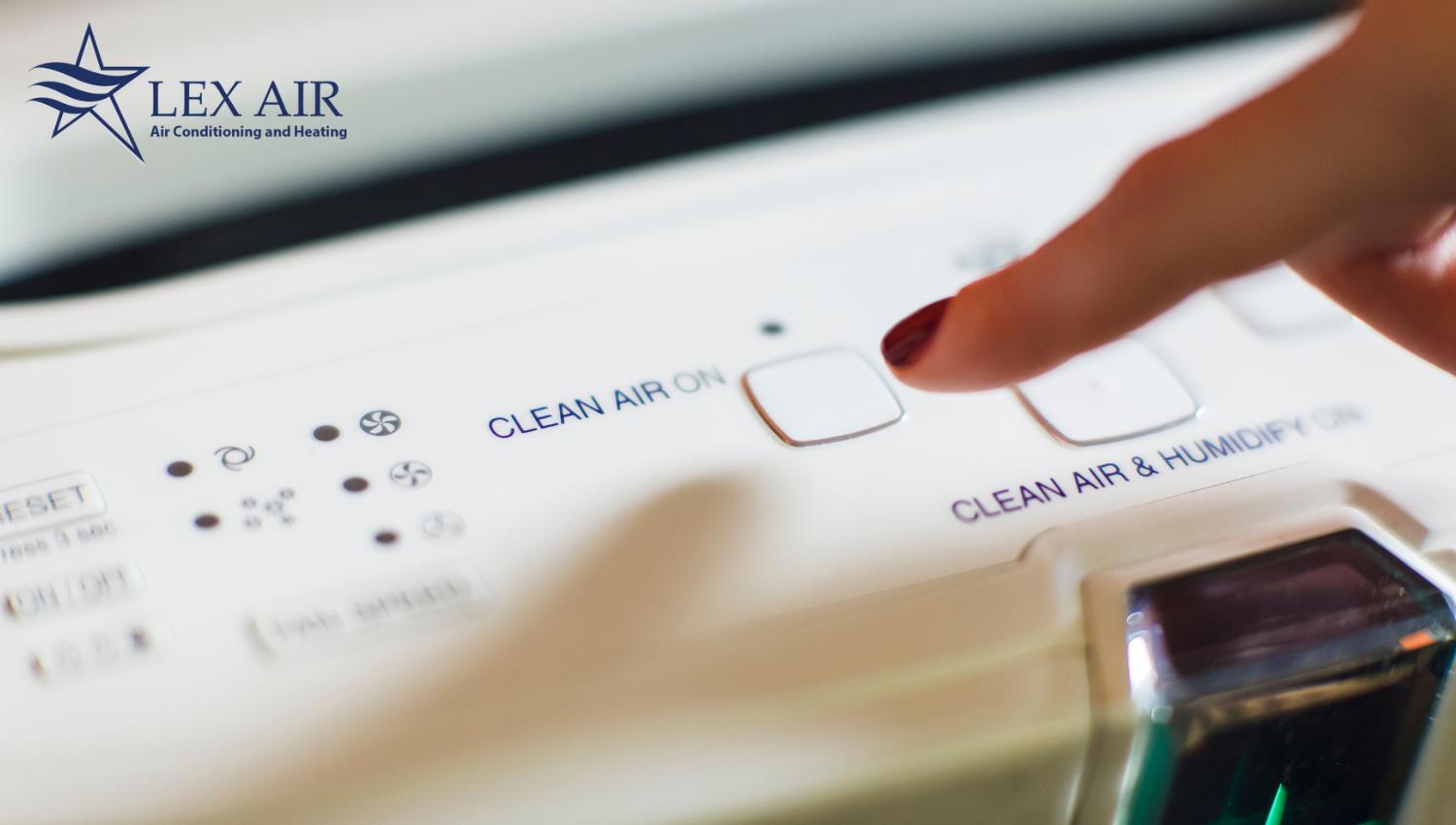
Interested in Installing an Air Filtration System in Your Home? Call Lex Air Conditioning & Heating Today
If you’re interested in making your indoor air cleaner for you and your family, an air purifier is a great place to start. If you want to learn more about air purifiers or simply want to weigh your options and find the best air purifier for your needs and budget, the experienced Carrollton AC repair techs at Lex Air Conditioning and Heating are happy to help. Give us a call at (972) 217-8955 or reach out to us online today!
